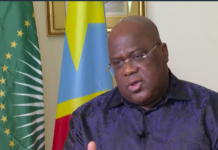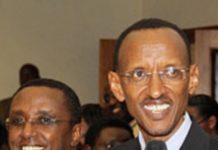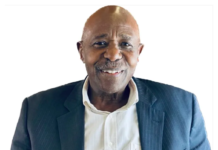By Arnold Gakuba
This article is based on the opinion of Edward Clay reviews (published on 22nd March 2021) on the book of Michela Wrong entitled “Do Not Disturb: The Story of a Political Murder and an African Regime Gone Bad” which will officially be published the 30th of March 2021.
Edward Clay (born 21 July 1945) is a retired British diplomat, who mostly served in East African countries (Rwanda, Burundi, Kenya and Uganda) as a High Commissioner and non-resident ambassador. On the other side, Michela Wrong (born 1961) is a British journalist and author who spent six years as a foreign correspondent covering events across the African continent for Reuters, the BBC and the Financial Times. She wrote a book on Rwanda, which talks of its president Paul Kagame and its murder regime.
Michela Wrong made a powerful investigation into a grisly political murder and the authoritarian regime of RPF, Paul Kagame behind it. This new book explores the controversial career of Paul Kagame and the legacy of the Rwandan genocide. It is a dramatic recasting of the modern history of Africa’s Great Lakes region, an area blighted by the greatest genocide of the twentieth century. In the old version, after 1994, an idealistic group of young rebels overthrew the regime Habyarimana, ushering in an era of peace and stability, made Rwanda the donor darling of the West, winning comparisons with Switzerland and Singapore. But the truth was considerably more sinister. Michela Wrong uses the vividly sourcing story of Patrick Karegeya, once Rwanda’s head of external intelligence and a quicksilver operator of supple charm, to paint the portrait of a modern African dictatorship created in the chilling likeness of Paul Kagame, the president who sanctioned his former friend’s murder.
Edward Clay stated that he first encountered Rwandans as refugees in Burundi in 1964 and then again in Rwanda as non-resident British ambassador in 1994. At that time, he believed the Rwandan Patriotic Front (RPF) soldiers, fighting with Habyarimana regime and came out victorious, was heroes in a just cause, up to 1994. Once in Rwanda, the RPF claimed a place in the regional peace process which was supposed to lead to the establishment of an inclusive government. However, he has recently discovered different things.
The story of RPF soldiers has the elements of tragedy, struggle and ultimate success to be truly heroic. After 1994, the world’s sympathy and guilty conscience over the genocide ascribed virtue to the victorious RPF. They helped the struggling new regime, buttressed by the return of exiles from the region and beyond, to rebuild Rwanda. But the lustre began to tarnish as events raised questions about their virtue, and the intentions they had proclaimed in their days of struggle. The decision to mention only the Tutsis as victims of the genocide is a travesty. To suggest non-Tutsi were not victims, too, indicated an exclusivist hubris on the part of Rwanda’s new masters.
Based on the story of Patrick Karegeya, Michela Wrong lays out the context of her story with great care. Patrick Karegeya is one of those who joined the RPF’s trek home from Uganda, and became its intelligence chief. His job commanded respect, and his character made him popular in the RPF, and internationally well known. He, more than most, must have known where the bodies were buried.
As the RPF’s new government settled in after their military victory in 1994, the shadows began to lengthen over its reputation. Those who cut it some slack on the grounds of necessity came to feel increasingly uneasy about its internal direction, its willingness to ditch the inclusion of Hutus in the government, its ruthlessness internally and its foreign adventurism. Questions arose about its own record of crimes against humanity during and after the civil war of 1990-1994.
For Michela Wrong, this is the right moment to train her forensic eye and formidable writer’s skills on the later, unheroic phase of the RPF under President Kagame. She pre-empts head-on what have become standard lines of attack by Paul Kagame’s regime apologists, both Rwandan and foreign – that those who criticise the regime are somehow genocide-deniers and irredeemably ill-disposed to the post-1994 Rwanda.
For her, there are some mysteries that have remained unexplained for the last 26 years of Paul Kagame regime. No spoiler alerts, but these include the circumstances of the death of the RPF’s first leader, Fred Rwigema; and the shooting down of the hired French aircraft conveying the presidents of both Rwanda and Burundi from a meeting in the Arusha Peace Process. Responsibility for the attack remains a mystery which has until now poisoned Rwanda’s relations with France. She also has important insights into the characters of the RPF leaders in their heroic phase, which helps to understand how they behaved in the non-heroic aftermath.
Few of us rumbled the difference between those Rwandans whose families had migrated more than a generation before 1994, and were therefore ethnic Rwandan citizens of, and settled in Uganda; and those Rwandan citizens whose parents fled from the persecutions and pogroms unleashed by the Hutu leaders in Rwanda after independence, and took refuge in Uganda, or other neighboring countries. Karegeya was a Ugandan of Rwandan ethnicity: this split loyalty became most painful for him when, in the DRC, Rwandan and Ugandan troops confronted each other on opposite sides. His Ugandan origin made him vulnerable to charges of disloyalty when it suited his erstwhile colleagues in the RPF.
Wrong also dug into the character of Paul Kagame who is severe demeanor and spare physical frame and emerged from obscurity to leadership and thence to the presidency of Rwanda. From a stern disciplinarian he has become the hammer of his opponents and a remorseless driver of his old friends into exile, where many met their deaths. Karegeya was privy to some of those RPF assassinations. He was the regime’s man abroad, and the broker for the blood diamonds looted from the DRC. His disillusionment with Kagame might have rehabilitated his reputation, had his assassins not interrupted that process.
Wrong concludes her book saying that the heroic days of the RPF have yielded to duplicity, treachery, betrayal and assassination. Why those who later fell out with the regime did serve so long as its defenders, apologists and executives; and why is the obscure Kagame of 1990 still standing tall thirty years on? It is time to make RPF regime of lies, murder, corruption led by Paul Kagame collapse.
































































